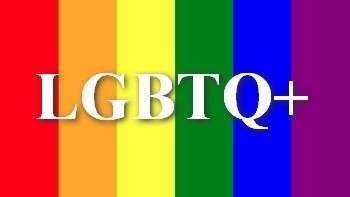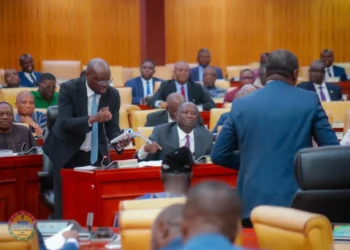The parliament of Ghana, on the 28th of February 2024, passed the controversial bill after three years of rigorous debates and consideration.
One of the sponsors of the bill, Member of Parliament for Ningo-Prampram, Hon. Sam Nartey George, assured Ghanaians that the bill would be sent within seven days to the President, Akuffo-Addo to assent to it.
If the President signs the legislation, Ghana will join 36 African countries where homosexuality is illegal. It’s punishable by death in some countries, including Nigeria and Mauritania. So, Africa remains a tough place for LGBTQIA+ people.
A coalition of Christian, Muslim, and Ghanaian traditional leaders sponsored the legislation.
Gay sex was already punishable by up to three years in prison. The bill now also imposes a prison sentence of up to five years for the “wilful promotion, sponsorship, or support of LGBTQIA+ activities”.
It also encourages the public to report members of the LGBTQIA+ community to authorities for necessary action.
Winnie Byanyima, executive director of the United Nations Aids agency UNAIDS, said in a statement that the bill would affect everyone if it became law, adding that punitive laws as embodied by the bill, are a barrier to ending AIDS, and ultimately undermine everyone’s health.
“If the Human Sexual Rights and Ghanaian Family Values Bill becomes a law, it will exacerbate fear and hatred, could incite violence against fellow Ghanaian citizens, and will negatively impact free speech, freedom of movement, and freedom of association,” Winnie Byanyima said.
A disturbing trend of trans legislation is threatening queer artist’s livelihoods and lives.
The measures are all direct attacks on the LGBTQIA+ community, but they’re also likely to affect theatre fans and professionals alike.
Theatre is indelibly linked to queer people and has been for most of its existence. For decades, queer people have found safety, home, and community in the theatre, whether as workers in the industry or even just as theatre fans.
It’s currently unclear just how or if these pieces of legislation will affect queer theatre artists.
Queer people mostly undergo discrimination in public with others describing them as evil because it does not align with the cultural values and religious values in Ghana.
Reactions Of Netizens On Passed Bill

After the passing of the bill, advocates, artists, and others voiced their opinions.
Some stated that the passage of the bill is in the best interest of Ghana as a sovereign state while others are against it.
On behalf of the LGBTQIA+ community, Angel Maxine, a transgender, expressed her fears of being targeted because of her queer identity and that the bill might incite violence against queer people.
“The bill is going to give people the license and the liberty to attack queer people because they think it is legal,” she said.
Ghanaian musician, Sister Derby, who is a staunch opposer of the bill since its introduction in 2021, stressed that it is a violation of the rights of members of the LGBTQIA+ community.
The musician sarcastically quizzed if the passage of the bill would address the numerous problems of the country.
“The passage of the bill will fix the roads, build hospitals and schools, ensure that there’s potable water in every community, clean all the polluted rivers, stop Galamsey, provide jobs for the youth, solve the plastic pollution menace, take the kids off the streets and also solve light off issue lmao,” Sister Derby tweeted.
Also, Dr. Lawrence Tetteh stated that he had listened extensively to the intellectual discourse and public debate surrounding the bill, hence, he believes strongly that the bill is good for the Ghanaian community.
“This nonsense cannot be taken to Kuwait, cannot be taken to Saudi Arabia, cannot be taken to certain parts of the continent. Does it mean that because of poverty, any junk at all should be placed on us? Thank God I have been to school and I’ve listened to intellectual discourse.
“We’re losing and missing out on our crunch of it. Our cultural values do not accept it. Our religious values do not accept it. Our traditional norms do not accept it. I was born in James Town. In that community, when you go there now, it is a mess.”
Dr. Lawrence Tetteh
Shasha Marley challenged individuals who oppose the LGBTQIA+ community, questioning whether they consider themselves saints and adding that no sin is greater than the other.
“I met a young guy on a bus who is gay on my way to Takoradi one day, and I didn’t know until he told me. I asked what was going on, and to my surprise, he actually wanted to come out of it, but he was afraid of the stigma alone, and that might even cause him to commit suicide. Clearly, this guy wants to come out of it, same as others which tells you that if you show them love and affection, they might change their minds instead of judging them.”
Shasha Marley
READ ALSO: Afua Asantewaa Declares ‘Dumsor’ Contributed To Disqualification





















